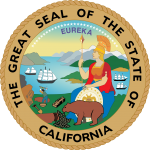 The need for perseverance was a recurring theme this week when Governor Edmund G. Brown Jr. delivered his 16th and final report on the state of the state.
The need for perseverance was a recurring theme this week when Governor Edmund G. Brown Jr. delivered his 16th and final report on the state of the state.
He brought up the concept in discussing some of the major pending infrastructure projects, including the California WaterFix, transportation system maintenance and the high-speed rail system.
The Governor opened his remarks with a recap of bipartisan efforts in recent years that led to passage of pension and workers’ compensation reform, the water bond, rainy day fund and the cap-and-trade program. These efforts, he said, show that “some American governments can get things done even in the face of deepening partisan division.”
He thanked the firefighters, first responders and volunteers who helped deal with the recent fires and mudslides, calling them an example of people working together regardless of party.
On dealing with the environment, the Governor commented: “We can’t fight nature. We have to learn how to get along with her.”
He said he will be convening a task force of scientists and knowledgeable forest practitioners to review how forests are managed and suggest ways to reduce the threat of devastating fires. The task force also will look at how the state can increase resiliency and carbon storage capacity.
Turning to the state’s leadership on measures to reduce greenhouse gas emissions, he called on legislators to renew the spending plan for revenues generated by the cap-and-trade auctions.
In addition, he pointed out that legislators had passed, with two-thirds of voters approving, a water bond that invests in safe drinking water, conservation and storage. “As the climate changes and more water arrives as rain instead of snow, it is crucial that we are able to capture the overflow in a timely and responsible way,” the Governor pointed out.
He cited the work being done to restore the Sacramento and San Joaquin watersheds to protect water supplies and improve salmon runs, as well as the California WaterFix “a long-studied and carefully designed project to modernize our broken water systems.”
The Governor commented that local water districts, north and south, are providing leadership and the financing for the project because “they know it is vital for their communities, and for the whole state. That is true, and that is the reason why I have persisted.”
The California economy also depends on the mobility provided by a modern and efficient transportation system, the Governor said. “The vote on the gas tax was not easy but it was essential.”
The funds made available by SB 1 are “absolutely necessary” to maintain California roads and keep transit systems in good repair, the Governor said. “Fighting a gas tax may appear to be good politics, but it isn’t. I will do everything in my power to defeat any repeal effort that may make it to the ballot.”
Admitting that he likes trains and he likes “high-speed trains even better,” the Governor compared the obstacles facing the high-speed rail project to those encountered by the building of the Bay Area Rapid Transit System (BART), the Golden Gate Bridge and the Panama Canal. “But build it they did and build it we will—America’s first high-speed rail system.”
On education, the Governor cited his budget proposal to link spending with local accountability plans and said the answer to the achievement gap between students from wealthier areas and those from low-income families “is not more micro-management with intrusive state laws.”
He highlighted his proposal to create a California online college so that working Californians between the ages of 25 and 34 who lack a postsecondary degree or certificate can get the training they need, conveniently and at a low cost.
The Governor also called on listeners to take time to understand how the system of crime and punishment has evolved, how other states and nations devise their systems, and what changes California might make. Instead of enacting new laws, he said, lawmakers should consider the overall system and what truly protects public safety.
He returned to perseverance in his conclusion: “We too will persist against storms and turmoil, obstacles great and small. The spirit of democracy never dies. It’s alive in this chamber, in the hearts of Californians and in people throughout the world. Let this be a great year—for California, for our nation, and for our future.”

